
Milton Courtright Elliott (December 28, 1879 - 1928) was a lawyer and judge from Norfolk, Virginia. He became counsel to the Federal Reserve Board.

Milton Courtright Elliott (December 28, 1879 - 1928) was a lawyer and judge from Norfolk, Virginia. He became counsel to the Federal Reserve Board.
He was born on December 28, 1879, in Norfolk, Virginia, to Warren Grice Elliott (1848-1906) and Margaret Blow. His father was president of the Atlantic Coast Line Railroad. He graduated from the University of Virginia in 1902. [1]
He married Lucy Hamilton Cocke on December 19, 1906. He became counsel to the Federal Reserve Board. [2]
He died in 1928.
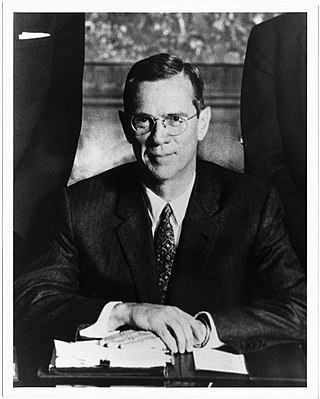
William McChesney Martin Jr. was an American business executive who served as the 9th chairman of the Federal Reserve from 1951 to 1970, making him the longest holder of that position. He was nominated to the post by President Harry S. Truman and reappointed by four of his successors. Martin, who once considered becoming a Presbyterian minister, was described by a Washington journalist as "the happy Puritan".

Roy Archibald Young was an American banker who served as the 4th chairman of the Federal Reserve from 1927 to 1930. During his tenure as chairman, the Wall Street crash of 1929 occurred, which signaled the beginning of the Great Depression. Before and after his term at the Federal Reserve Board, Young also served as the president of the Federal Reserve Bank of Minneapolis from 1919 to 1927 and Federal Reserve Bank of Boston from 1930 to 1942.

Claude Augustus Swanson was an American lawyer and Democratic politician from Virginia. He served as U.S. Representative (1893–1906), Governor of Virginia (1906–1910), and U.S. Senator from Virginia (1910–1933), before becoming U.S. Secretary of the Navy under President Franklin D. Roosevelt from 1933 until his death. Swanson and fellow U.S. Senator Thomas Staples Martin led a Democratic political machine in Virginia for decades in the late 19th and early 20th century, which later became known as the Byrd Organization for Swanson's successor as U.S. Senator, Harry Flood Byrd.

Carter Glass was an American newspaper publisher and Democratic politician from Lynchburg, Virginia. He represented Virginia in both houses of Congress and served as the United States Secretary of the Treasury under President Woodrow Wilson. He played a major role in the establishment of the U.S. financial regulatory system, helping to establish the Federal Reserve System and the Federal Deposit Insurance Corporation.
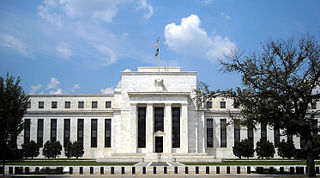
The Federal Reserve System, commonly known as "the Fed," has faced various criticisms since its establishment in 1913. Critics have questioned its effectiveness in managing inflation, regulating the banking system, and stabilizing the economy. Notable critics include Nobel laureate economist Milton Friedman and his fellow monetarist Anna Schwartz, who argued that the Fed's policies exacerbated the Great Depression. More recently, former Congressman Ron Paul has advocated for the abolition of the Fed and a return to a gold standard.
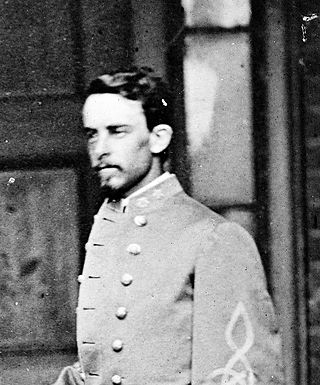
Walter Herron Taylor was an American banker, lawyer, soldier, politician, author, and railroad executive from Norfolk, Virginia. During the American Civil War, he fought with the Confederate States Army, became a key aide to General Robert E. Lee and rose to the rank of Colonel. After the war, Taylor became a senator in the Virginia General Assembly, and attorney for the Norfolk and Western Railway and later the Virginian Railway.

Gilbert Carlton Walker was an American politician. He served as the 36th Governor of Virginia, first as a Republican provisional governor between 1869 and 1870, and again as a Democrat elected governor from 1870 to 1874. He was the last Republican governor of Virginia until Linwood Holton took office in 1970.

George Leslie Harrison was an American banker, insurance executive and advisor to Secretary of War Henry L. Stimson during World War II.

Eugene Robert Black I was an American attorney and businessman who served as the 6th chairman of the Federal Reserve from 1933 to 1934. Before and after his term as chairman, Black also served as the governor of the Federal Reserve Bank of Atlanta from 1928 to 1933 and again from August 1934 until his death in December of the same year.

William Proctor Gould Harding was an American banker who served as the second chairman of the Federal Reserve from 1916 to 1922. Prior to his term as chairman, Harding served as one of the original members of the Federal Reserve Board, taking office in 1914. During his tenure as chairman, he concurrently served as the managing director of the War Finance Corporation from 1918 to 1919. Harding was responsible for a severe wave of inflation during the First World War. After leaving the Fed, Harding traveled to Cuba and advised the Cuban government on the reorganization of its financial and accounting system.
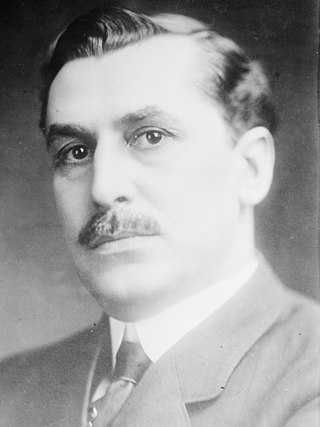
Edwin Thomas Meredith was an American entrepreneur, founder of the Meredith Corporation and also served as the U.S. secretary of agriculture in President Woodrow Wilson's administration.

Charles Grenfill Washburn was a member of the United States House of Representatives from Massachusetts.
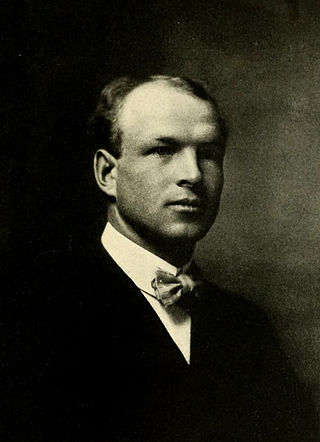
Robert Roswell "Buster" Brown was an American football player, coach of football, basketball, and baseball, and college athletics administrator. After playing college football at Dartmouth College, he coached football teams at Virginia Tech, North Carolina, Washington and Lee, and Tulane. In 1910, he moved to Roswell, New Mexico, where he served for more than 25 years as the football coach and athletic director at the New Mexico Military Institute.

A Monetary History of the United States, 1867–1960 is a book written in 1963 by future Nobel Prize-winning economist Milton Friedman and Anna Schwartz. It uses historical time series and economic analysis to argue the then-novel proposition that changes in the money supply profoundly influenced the United States economy, especially the behavior of economic fluctuations. The implication they draw is that changes in the money supply had unintended adverse effects, and that sound monetary policy is necessary for economic stability. Orthodox economic historians see it as one of the most influential economics books of the century. The chapter dealing with the causes of the Great Depression was published as a standalone book titled The Great Contraction, 1929–1933.
Warren Grice Elliott was president of the Atlantic Coast Line Railroad starting in 1902.
Courtright is a surname. Notable people with the surname include:

Emanuel Alexsndrovich Goldenweiser was born in Kiev, on July 31, 1883. His father was a prominent member of the Kiev bar. The family was modestly wealthy and cosmopolitan. Upon graduation from the First Kiev Gymnasium in 1902, Emanuel followed his older brother, Alexander (Shura), to the United States. He received a BA from Columbia University in 1903, and MA from Cornell in 1905, and a PhD from Cornell in 1907. His PhD thesis subject was "Russian Immigration to the U.S." He became a U.S. citizen in the same year.
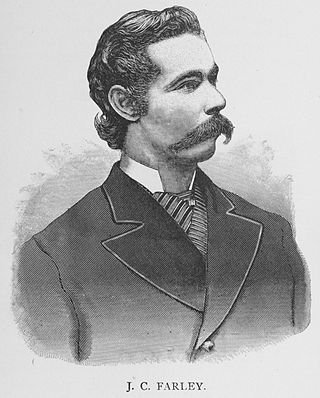
James Conway Farley was a photographer in Richmond, Virginia. He was the proprietor of the Jefferson Fine Arts Gallery from 1895 into the 1900s. He is known as the first nationally recognized African-American photographer.

Susan Watkins was an American artist, known for painting in the styles of realism and impressionism. She studied under William Merritt Chase and Raphaël Collin. Two of her pieces are on permanent display at the Chrysler Museum of Art in Norfolk, Virginia.

William Douglas Gordon was an American newspaper editor, critic, and attorney. He was editor of The Norfolk Ledger-Dispatch in Virginia for 22 years. He was also a critic and editor of the Richmond Times-Dispatch. At his death, The Richmond News Leader wrote, "He was much more than an editor: he was a Norfolk institution."
... He practiced in Richmond 1902-3; in Norfolk, 1903-7; in Washington, 1907-9; in Philadelphia, 1909-10 ...
Milton Elliott, counsel for the Federal Reserve Board, in response to questions, today made the following statement about the decision of the Illinois Supreme Court denying to national banks the right to act as trustee, executor, administrator, and registrar of stocks and bonds